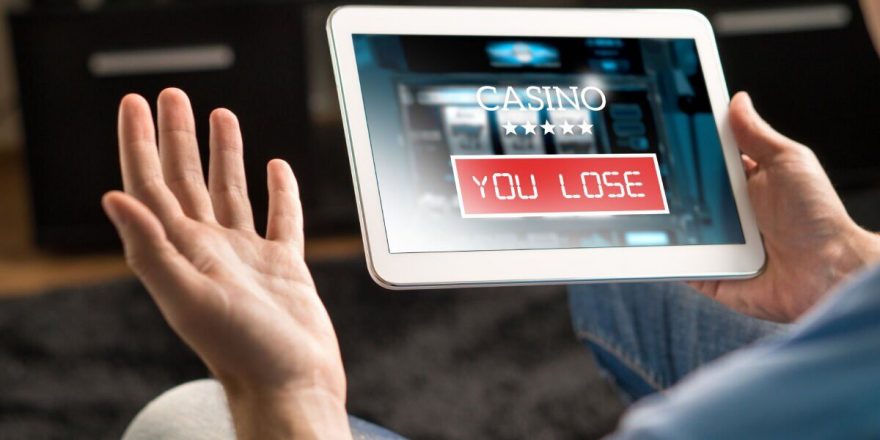Power of attorney protection comes good with £5,000 returned by bank

We use your sign-up to provide content in ways you’ve consented to and to improve our understanding of you. This may include adverts from us and 3rd parties based on our understanding. You can unsubscribe at any time. More info
Crusader first reported in 2021 about the problem gambling of desperately troubled Stuart, the victim of a road accident, and the huge losses he then racked up as a result of his psychosis.
With his dad Jeff we kept challenging the lack of controls among some betting firms regulated by the Gambling Commission, and eventually over £100,000 in refunds was returned to Stuart.
++ If you’ve been affected by this issue or feel you’ve been a victim of injustice, please contact consumer champion Maisha Frost on [email protected]
But as Stuart’s schizophrenic condition fluctuated, compounded by times he spent sectioned in hospital, he opened other accounts.
These included personal bank ones using the money awarded through his accident claim and intended to support his lifelong dependency.
“The level of checks and protection remains very poor, even when Stuart was having a better spell and contacted the companies to let them know what he had done when delusional,” claims Jeff.
Most recently Stuart has been playing online roulette and although blocked through Gamstop, the free service that enables people to restrict their activities, “he created other multiple profiles using fake ID screenshots from social media,” adds Jeff.
“Companies then reported him to the police resulting in Stuart’s psychiatrist having to write reports to exonerate him. My son has the capacity to gamble but not the mental capacity to realise the consequences which is why I now have power of attorney to handle his affairs and protect him from himself. The distress never ends.”
Jeff asked for Crusader’s help again recently with banks as well as bookies. Now Virgin Money UK has returned the £5,000 Stuart borrowed, a mix of loans and overdrafts all spent on betting. Nationwide has also returned £7,500 with the accounts now closed.
Based in Scotland Jeff has its continuous power of attorney (CPOA) over his son’s welfare and financial affairs.
But he explains: “In England it seems easier to let banks know of my authority. I get a unique code relating to my Lasting Power of Attorney that I send so they can access full details and are alerted. In Scotland it’s more complicated. They each need a certified copy of the original document and more identification.
“If Stuart applies for another account in the meantime, no one is aware as there’s no notification.
“I could apply for a guardianship but that is very complicated and takes a long time. Besides it should be enough with a CPOA anyway. The process adds to the stress on families under pressure and I want to campaign for changes so there is easier code access.”
After contacting Virgin Money in September and sending an online copy of his authority to act for his son, he did not hear. This changed last month when Crusader raised the matter.
Jeff was then disappointed by the time it had taken the bank to tell him that the documents he had sent in originally did not meet its criteria. However, we asked the bank if it could help and now it has, much to his relief.
“We are very pleased we have a resolution, we are obligated to adhere to strict guidelines. Virgin Money requires a certified copy of the original documentation, or for the customer to attend a store with the original to be copied, in addition to identification for the person that holds the Power of Attorney,” said a bank spokesperson, citing its guidance.
Jeff was rightly concerned about the trouble and cost involved if he had had to resort to taking out a guardianship or applying to the Court of Protection.
According to qualified solicitor Nicholas Jervis who runs nationwide legal group Solicitors Near Me whi
The time scale involved is between five to seven months usually, “but they could apply for an interim order within two to three weeks if urgent (which it is of course) once the main application with the expert report has been submitted,” explains Jervis.
Last year, after a much-needed Government review of the Gambling Act 2005, a White Paper on reforms to regulation that included protecting people from gambling related harm, was promised.
But now a further inquiry is underway and the wait continues.
During our battle supporting Stuart and Jeff we all repeatedly challenged online gambling firm TonyBet which, before having a change of mind and settling, refused to refund the £20,000 Stuart spent with it when so ill.
Last month the Gambling Commission fined TonyBet £442,750 for failing to have fair and transparent terms for customers and for failing to follow social responsibility and anti-money laundering rules.
[Stuart and Jeff’s names have been changed]
Source: Read Full Article

